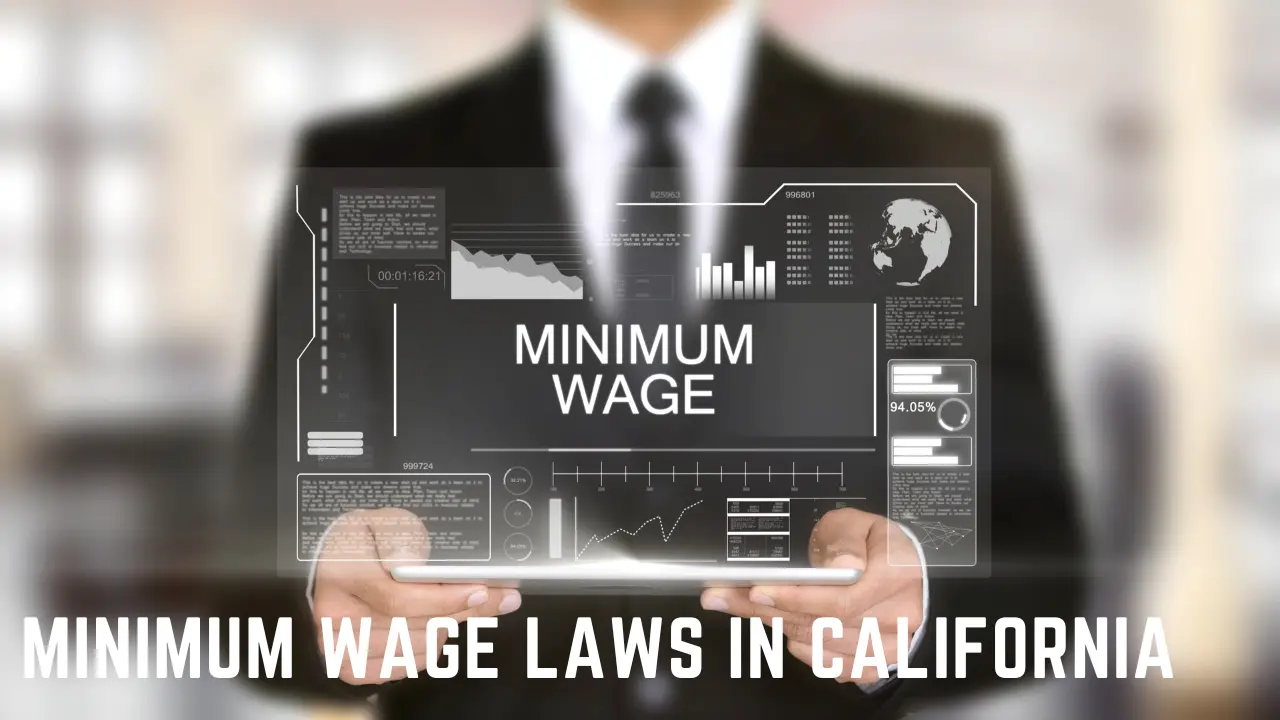As we approach 2024, a critical examination of the minimum wage laws in the state of California becomes increasingly pertinent. The Golden State is known for its progressive labor policies, with a statewide minimum wage that far exceeds the federal standard.
Yet, the economic realities within the state vary significantly, prompting certain cities to implement their own, often higher, minimum wage rates. This complexity, coupled with various exceptions and exemptions to the laws, creates a multifaceted landscape for both businesses and workers to navigate.
As we delve deeper into this intricate web of legislation, it becomes clear that understanding these laws is not merely beneficial, but essential for all parties involved.
California’s 2024 Minimum Wage
In accordance with the annual increase, the statewide minimum wage in California has reached $16.00 per hour in 2024, surpassing the federal minimum wage of $7.25 per hour, thereby reflecting the state’s commitment to worker rights and economic sustainability.
This raise in minimum wage has several implications on businesses and the overall economic landscape. Higher labor costs may affect profit margins, potentially leading to increased prices or operational adjustments. Some businesses may also invest more in automation to reduce dependency on manual labor.
Despite these challenges, the economic impact is multifaceted. Increased wages can stimulate consumer spending, which drives economic growth. Furthermore, higher wages can reduce income inequality, contributing to a more balanced economic structure.
Exceptions to Wage Requirements
While California’s minimum wage laws apply broadly, there are specific exceptions and exemptions that warrant close examination. Student exemptions are one such category, where student employees, camp counselors, and program counselors in organized camps can be paid 85% of the minimum wage. This concession aims to balance the educational objectives with the realities of competitive employment markets.
Another significant exception concerns salespersons. In particular, outside salespersons, who spend more than half their working hours away from the employer’s place of business, are exempted. This recognizes the unique nature of their work environment which often involves distinct compensation structures.
While these exceptions may seem divergent, they are integral to understanding the nuanced landscape of California’s minimum wage laws.
Minimum Wage for Tipped Employees
Navigating the intricacies of wage laws becomes particularly complex when considering the unique circumstances of employees who earn a significant portion of their income from tips. In California, the minimum wage laws for 2024 maintain a universal application, impacting servers equally with non-tipped employees.
- The state does not recognize a separate, lower wage for tipped employees.
- This ensures servers receive at least the state-mandated minimum wage of $16.00 per hour, irrespective of tips.
- California’s tip pooling regulations allow for shared tips among service staff but do not offset the wage requirements.
- As such, employers are prohibited from counting tips towards meeting the minimum wage obligations.
This approach safeguards the income of tipped employees and minimizes wage disparities.
Recourse for Wage Underpayment
Despite the comprehensive regulations ensuring fair wages, circumstances may arise where employees receive less than the stipulated minimum wage, thus necessitating a clear understanding of the legal recourse available in such situations.
Employees experiencing underpayment can explore several legal options, including filing wage claims with the California Labor Commissioner’s Office or initiating lawsuits against their employers. Wage theft penalties are imposed on employers found guilty of underpayment, which can include owed wages, interest, attorney fees, and civil penalties.
Further, liquidated damages equivalent to the unpaid wages and interest could be awarded. These robust measures underscore California’s commitment to safeguarding workers’ rights and provide a potent deterrent against wage theft, thereby ensuring the effective enforcement of minimum wage laws.
Legal Framework of Wage Laws
How does California’s legal framework uphold and enforce its wage laws?
California’s wage laws are enforced within a rigorous legal framework that ensures strict compliance and resolves wage disputes. This framework is bolstered by the Labor Codes and court decisions that set precedence.
- Labor Code 1197 makes it unlawful to pay wages lower than the minimum stipulated amount, asserting the rights of workers.
- Labor Code 1182.12 provides a clear schedule for minimum wage increases, ensuring predictability for both employers and employees.
- Labor Code 1171 casts a wide net of applicability, with certain specific exceptions.
Various court decisions shape the interpretation and enforcement of these laws, creating a dynamic legal environment that evolves with societal changes and economic conditions.
Enforcement and Compliance Measures
Building on the legal framework that supports California’s wage laws, it is crucial to examine the measures in place for their enforcement and the essential steps businesses must take to ensure compliance.
The enforcement strategies include legal proceedings and sanctions, supported by court rulings that uphold the state’s wage laws. For businesses, compliance requires understanding the complexity of the laws, regular monitoring of changes, and proactive adjustments of wage policies.
Non-compliance might result in severe penalties, lawsuits, and reputational damage. Moreover, the state encourages employees to report any non-compliance, further intensifying enforcement. Effective enforcement of wage laws ensures that all workers receive the minimum wage and creates a level playing field for all businesses.
Conclusion
In conclusion, California’s minimum wage laws for 2024 embody a significant stride in worker protection, with a state minimum surpassing the federal rate and even higher rates in select cities. However, specific exemptions exist. Tipped employees have unique considerations, and workers underpaid have defined recourses.
Understanding the legal framework and enforcement mechanisms of these laws is crucial for employer compliance and employee rights, highlighting the importance of informed stakeholders in this evolving economic landscape.







